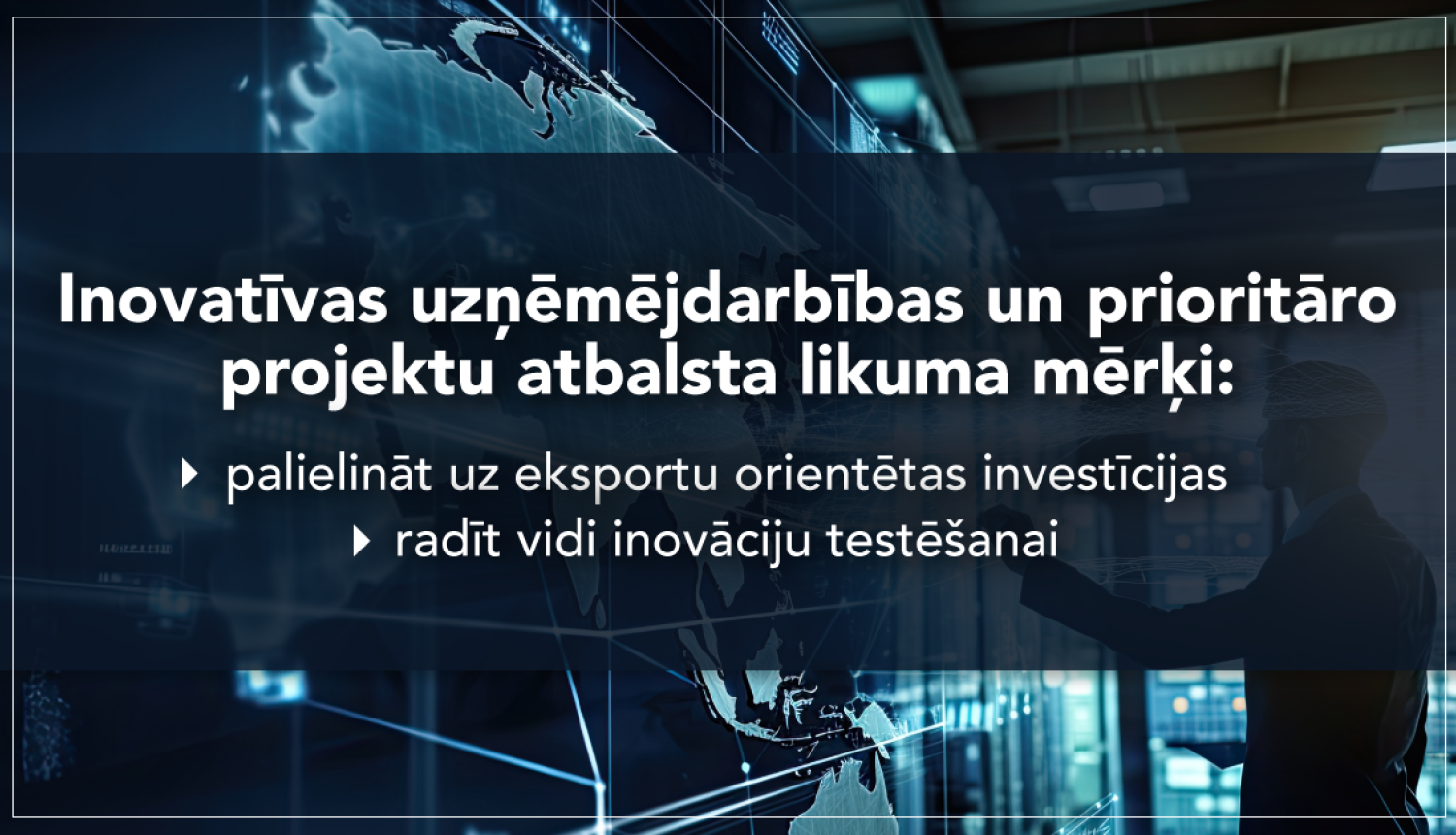On 14 March, the Saeima approved in its final reading the Law on Support for Innovative Entrepreneurship and Priority Projects, which was drafted by the Ministry of Economics with the aim of increasing high value-added and export-oriented investment in Latvia and creating an environment for testing and testing innovative products, technologies and services, thus contributing to the development of the national economy. At the same time, the law defines priority project areas and provides for the possibility to develop support measures to promote entrepreneurship and exportability.
A priority project within the meaning of this Law is an investment attraction or export-enhancing project that contributes to the achievement of objectives set out in development planning documents, national industrial policy or digital transformation policy or contributes to the elimination of market failures that hinder the effective achievement of these objectives.
I believe that the new regulation will provide a strong incentive to expand the range of Latvian investment and export projects, ensuring the possibility to apply the so-called "green corridor" principle not only to investment projects in certain priority areas, but also to exporting companies. Until now, the "green corridor" was limited to investment projects of a certain size and scope, which has been significantly extended in the new draft law. It is also very important that the new law will also include the principles and conditions of the special regulatory environment or the so-called regulatory sandbox, which is the first step towards introducing a special favourable treatment for research and innovation projects, their testing and faster implementation, as well as commercialisation," emphasises Minister of Economy Viktors Valainis.
The law identifies the following priority project areas:
- Knowledge-intensive bioeconomy;
- biomedicine, medical technologies, pharmaceuticals;
- photonics and smart materials, technologies and engineering systems;
- Smart energy, mobility and net zero emission technologies;
- Information and communication technologies;
- construction, transport or logistics, where the project involves the provision of services and infrastructure in the above areas;
- tourism and international events;
- construction of low rent housing and social housing;
- security and defence;
- the operation of international business service centres and the provision of services;
- projects where the average remuneration of staff in the previous reference year is not less than the average remuneration of staff in the European Union in the previous reference year.
The Law provides that priority projects shall be evaluated in priority order and within a timeframe, which means that if the timeframe for the provision of certain services or authorisations is longer than five working days and project evaluation as a service is not offered on an accelerated basis for an additional fee, the priority project evaluation service shall be provided at least twice as quickly without any change in the fee for service conditions.
At the same time, the law provides that infrastructure or other investments required for the implementation of priority projects by a public body, a publicly controlled corporation or a public service operator shall be provided on a priority basis.
The Law also includes a delegation to the Cabinet of Ministers to issue Cabinet Regulations by 1 December this year, which will determine the procedure for servicing priority projects ("green corridor"). Until the date of entry into force of these Cabinet Regulations, Cabinet Regulation No 83 of 4 February 2021 "Regulations on the servicing of priority investment projects" will continue to apply to the extent that they do not conflict with this Law.
The Law also contains a regulation that provides the Cabinet of Ministers with the possibility to prepare, if necessary, relevant business support programmes or ad-hoc programmes for the implementation of priority projects that are important for the national economy, establishing the procedure and criteria for the granting of such business support.
In order to facilitate the development and market uptake of innovations, it is necessary to create an environment for innovation developers that will enable them to test new products, technologies or services in practice, minimising the administrative burden and facilitating the approval process. To this end, the Law includes a delegation to the Cabinet of Ministers to issue Cabinet Regulations by 1 December this year, which would include the conditions and procedures for the establishment, implementation, monitoring and termination of the special regulatory environment or regulatory sandboxes. Special regulatory environment or regulatory sandbox in the meaning of the Law is a specific legal framework, including in a specific limited area, where conditions different from the existing regulatory enactments apply, within which entrepreneurs and scientific institutions will be able to test and verify innovative products, technologies and services for commercialisation of the respective solutions.
As you know, Latvia launched the Green Corridor initiative in 2021, which allows investment projects in priority areas to receive certain public services on a fast-track basis, which was previously implemented under the COVID-19 law. Since 2021, 27 companies have been granted priority project status, with an estimated investment volume of €660 million.
The Law on Support for Innovative Entrepreneurship and Priority Projects can be consulted in detail on the Parliament's website.



